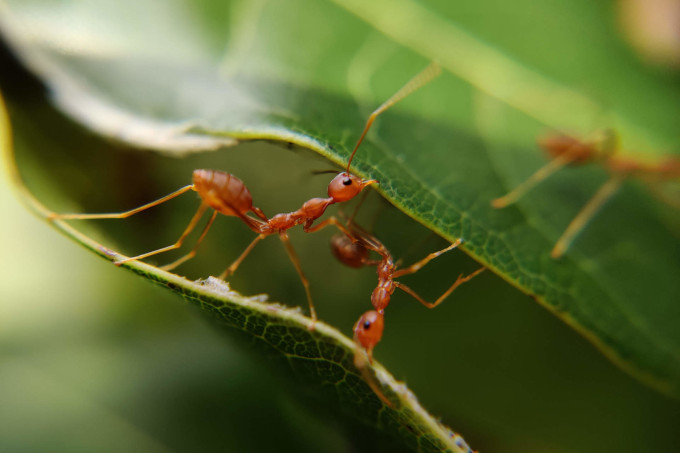The 17 Sustainable Development Goals of the United Nations
Charting the way to a better future
In 2015, the UN has ratified and published 17 goals for sustainable development that provide an action plan for all 193 UN member states to complete before 2030. These goals are set to pave the way for a sustainable world without poverty and inequality, with education and health for all, a protected environment, climate action and a sustainable economy. They reflect all three dimensions of sustainability—the ecological, social and economic—and call all countries to action.
A sustainable world needs each one of us. We must act individually, call others to take action and remind governments of their duty. By active voluntary work on the ground, national and international projects and lobbying, NABU contributes to the achievement of the SDGs. NABU is the “voice for people and nature” through the following means:
Political advocacy:
—NABU comments & supports the German government's sustainability strategy.
—NABU holds one of 14 advisory seats in the Sustainable Development Council, appointed by the German government in 2001.
SDG-specific NABU campaigns and initiatives:
— Und Action! campaign (in German language)
— NABU, nature conservation and SDGs – a digital exhibition
— Volunteers for Sustainability (in German language)
— SDG Project (in German language)
NABU and the 17 Sustainable Development Goals
What does environmental protection have to do with education? What's the link between the goal "zero hunger" and ecological farming? NABU's "SDG exhibition" gives an overview of the great challenges behind each of the 17 goals. It explains how these are connected to NABU's environmental protection goals and projects. It also gives advice as to what each one of us can do to contribute to the achievement of the 17 goals.
see the full exhibitionFind out what's behind each goal by clicking on its symbol!
SDG #1 – No poverty
Poverty has many faces, be it famine in a crisis region or relative poverty. In most countries, poor people in particular are dependent on intact natural resources...
SDG #2 – Zero hunger
Today, farmers worldwide produce one-third more calories than are necessary to feed the entire world population. However, hunger still prevails in many rural areas...
SDG #3 – Good health & well-being
Global life expectancy has risen steadily in recent years thanks to better medical care. However, more than half of the world’s population still does not have sufficient access to medical support....
SDG #4 – Quality education
The value of education is increasing – 91% of all children worldwide are now enrolled in primary school. The ability to read and write is a prerequisite for social participation and a decent job...
SDG #5 – Gender equality
Even though progress is visible in most countries, the sexes are not yet equal. Women are still exposed to high levels of violence and gender discrimination and earn less than men...
SDG #6 – Clean water and sanitation
Two thirds of the earth is covered in water, but only 0.3% of it is drinkable. Water is a scarce and precious resource needed for the production of commodities, e.g. food and cotton, and for personal hygiene...
SDG #7 – Affordable & clean energy
We need energy for electricity, for heating and for transport. The majority of energy consumed in Germany still comes from fossil sources that release CO2 and accelerate climate change...
SDG #8 – Decent work & economic growth
The global economy is growing at a slower pace than in the 1990s. Revenue from international trade enables investments in education and infrastructure in poorer regions. However, focus on economic growth often has a negative impact on workers and nature...
SDG #9 – Industry, Innovation & Infrastructure
A functioning infrastructure makes participation and progress possible. Economic innovations drive the development of society, but can also pose a threat to nature. The green sector offers new opportunities....
SDG #10 – Reduced inequalities
Worldwide, 7 billion people live in 193 nations. They speak 6,500 languages and belong to more than 1,300 ethnic groups. This diversity is impressive and worth protecting...
SDG #11 – Sustainable cities & communites
Today, more than 55% of the world’s population live in cities. By 2030, it will be over 65%. Cities and communities offer work, culture and promote active community life...
SDG #12 – Responsible consumption & production
Food, clothing, mobile phones, restaurant visits, online streaming – we all consume every day. Many raw materials and goods we buy come from abroad. Production and transport cause CO2, consume resources and endanger nature...
SDG #13 – Climate action
Millions of people already suffer from droughts or cold spells today. Human activity caused greenhouse gases that heated the earth by 1 degree. In Paris in 2015, the international community committed to halt global warming below 1.5 degrees...
SDG #14 – Life below water
Oceans are our largest ecosystem. They store 50 times more greenhouse gases than the atmosphere and are our most important natural carbon sink...
SDG #15 – Life on land
An estimated 6 billion animal and plant species live on land, only a fraction have been identified so far. In Germany, more than 33,000 insects are known; new ones are found every year...
SDG #16 – Peace, justice & strong institutions
Democratic participation, a fair judicial system and equal rights for all strengthen society and promote peace – the basis for sustainable development...
SDG #17 – Partnerships for the goals
In 2015, all 193 member states of the United Nations agreed on the 17 goals for sustainable development, in the knowledge that these 17 goals can only be achieved together...
17 goals for sustainable development
In 2015, the UN has ratified and published 17 goals for sustainable development that provide an action plan for all 193 UN member states to complete before 2030...

